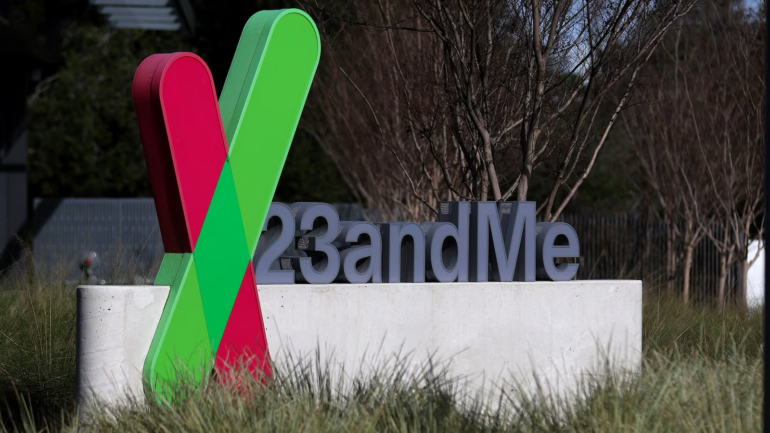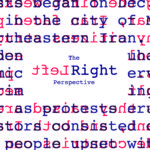“I think it’s important for us to do it.” My sister, five foot three, with long, thick dark brown hair and almond-shaped brown eyes to match, said as she held up her results. “You know, since we have no idea what we are.” I had to admit that there was a solid point hidden in her desire to do genetic testing, especially as an adoptee. But I had yet to be convinced to spit into a flimsy tube to be sent off to a lab; I felt like I was intruding on my ancestors’ privacy – ancestors I was prepared to let sit with all the other strangers I cross by and acknowledge that our persons will never actually collide. But what truly made me hesitant stemmed from an age-old question: “Would you want to know horrible and unpreventable news before it happens?” Because there is a chance I could find a piece of myself, such as future health issues, that are waiting patiently to make their move. And I don’t know if I can handle that, especially if it is already bound to happen.
There are over 100 genetic testing companies, with one of them being 23andMe; however, the company officially filed for bankruptcy on March 24 as their client base has dwindled due to their 2023 data breach – a cyberattack that was able to collect the personal information of millions of people. The main victims targeted during this breach were Ashkenazi Jews and those who are ethnically Chinese. With this news, my care for knowing my genetic background depleted further as the personal data of previous clients dangle on a steep cliff. Luckily, my sister did not use their business for her testing; however, who’s to say it couldn’t happen to the other genetic testing companies?
In an interview from PBS news, Ginny Fahs, the consumer reporter, brought into light the harsh reality we have to face about the companies that hold our DNA. She states, “When you create DNA data, it is hard to know what will happen to the institution that you have given that data to. So, even if you feel really good in the moment about a company having access to this sensitive information, that company could fold, that company could sell, that data could change hands, and it’s hard to know where it will end up.” Fahs trekked on with a hard-hitting example of what could happen. “Imagine a world where the 23andMe data is somehow acquired by an insurance company. That data could be used to deny you insurance coverage. It could be used to charge you higher premiums for life insurance, for long-term care insurance, for disability insurance.” Living in the United States there is no law that states it is illegal to not have health insurance, however, if you want quality care or have on-going health issues, health insurance is almost vital. It is absolutely horrifying to think of a future where your personal genetic makeup will inherently put a target on your back by insurance or health companies.
I was adopted from China in 2004. Back then, families who were adopting from the same orphanage would come together in a group, so I actually know several girls from my same orphanage. However, our families were all from different parts of the United States, so keeping in touch has always been a challenge. But when I was around six, I met another one of my orphanage sisters, who actually lived just a few miles away. Our mothers, with just a 20 minute conversation, realized we were adopted from the same orphanage back in China. Soon we started to joke around and pretend to actually be related because for us it wasn’t about blood – it never is with adoptees – it was about finding someone who has a part of you that is gone, even if you can’t remember it.
“I have a blood relative living in California!” My orphanage sister texted me one night. Like my sister, she, too, did genetic testing. I read the text over and over, thinking, what if I had a blood relative too? I know I obviously have bio-parents, but what about siblings? Or uncles and aunts? And do those uncles and aunts have children? All these questions and no chance to find answers unless I spit into a tube (which doesn’t even guarantee any results pertaining to family members). But, she had done it and my sister had done it… and if I could find out if there was someone out there who shared my own genetic makeup, maybe I would be able to figure out what happened when I was born. Do my blood relatives know about me? Am I a family secret, confined to a hidden box under the floorboards of my family’s home? Am I mourned? Or was I just a baby that happened to be created by accident? I was a blip in their past that was going to stand in their way for a future. Just like finding out any future health issues lying dormant in me, I don’t think I can handle this either. And I don’t think I want to try.
23andMe’s bankruptcy just so happened to be around my Gotcha Day – a day that marks when you were officially deemed a member of the family. The news of the business’s demise actually struck me a bit more than I expected. I had nothing to do with this unfortunate fate. Yet, I couldn’t help but think about all the adoptees who saw the hope it could bring to them. The clarity, I guess. I also understand those who just wanted to know what their fate could be, or what could even be preventable. It all makes justifiable sense. However, there is a brittleness to being human, and I am too cautious and too frightened by the idea of the accessibility to my genetics for both me and potentially the rest of the world.
Photo courtesy of ABC News.




